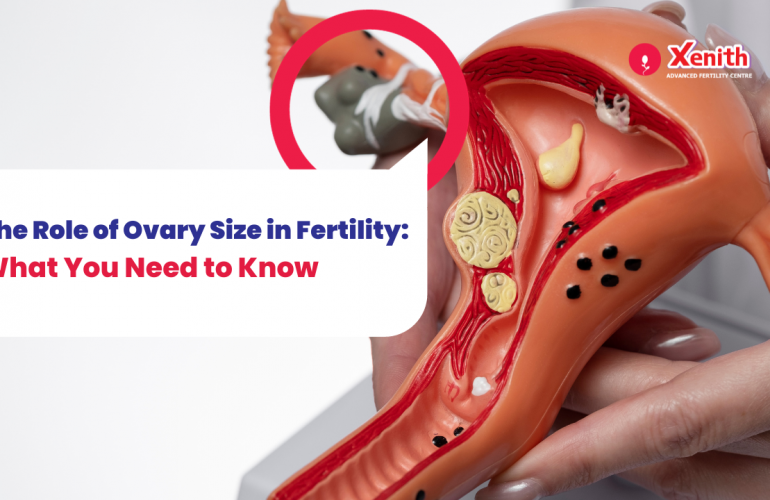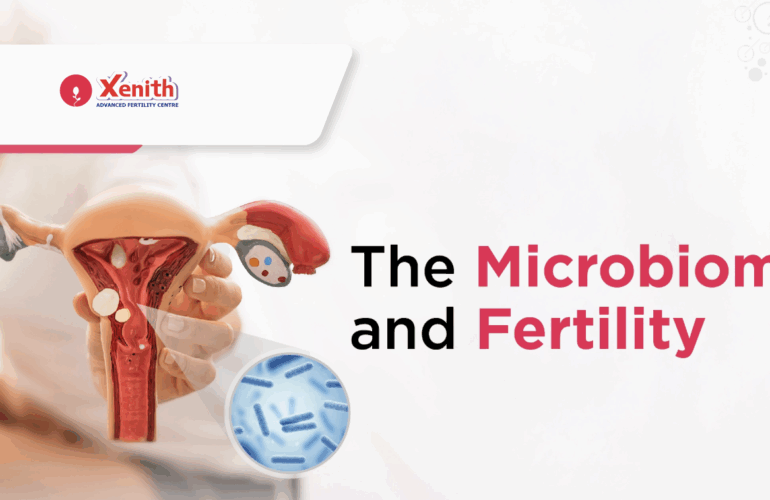If you’re searching for natural ways to improve your fertility, you’re already taking an important step in the right direction. But with so much information out there — from diet tips to stress management to workout plans — it’s easy to feel overwhelmed. You might even wonder: “If I can only focus on one thing, what will have the biggest impact?”
The good news is that improving male fertility doesn’t require an extreme lifestyle overhaul. A few focused, sustainable changes — particularly around exercise, stress, and sleep — can make a powerful difference in your sperm count, quality, and overall reproductive health.
This guide offers a clear and holistic approach, going beyond generic lists to help you build a daily routine that supports healthy sperm production, hormone balance, and long-term well-being.
How Exercise, Stress, and Sleep Work Together for Fertility
Male fertility is influenced by a wide range of lifestyle factors — and these don’t work in isolation. Instead, they form an interconnected system where each one affects the others.

Free Thursday Consultation
Book Your AppointmentFor example:
- Regular moderate exercise reduces cortisol (the stress hormone).
- Lower stress improves sleep quality.
- Better sleep supports the body’s natural testosterone production.
- Higher testosterone leads to healthier sperm production.
This loop creates a positive cycle — where one small change fuels the next — helping improve everything from sperm count to motility and morphology.
Top 5 Exercises to Increase Sperm Count and Quality
Certain types of physical activity have been shown to support sperm health more effectively than others. Here are five types of movement that can help boost your fertility.
1. Moderate Aerobic Exercise
Examples: Brisk walking, jogging, swimming, cycling (in moderation)
Cardio workouts improve cardiovascular health, regulate body weight, and reduce oxidative stress — all key factors for healthy sperm. Regular aerobic exercise also enhances blood flow to the reproductive organs and lowers inflammation.
Aim for 30–45 minutes of moderate activity at least 4 times a week.
Avoid long-distance or high-heat cycling, as prolonged testicular heat can impair sperm production.

2. Weightlifting and Resistance Training
Examples: Squats, deadlifts, push-ups, resistance band workouts
Strength training stimulates testosterone production, especially when you focus on large muscle groups. This rise in testosterone can directly support sperm production and overall reproductive hormone balance.
Incorporate resistance training 2–3 times per week.

3. Yoga for Male Fertility
Examples: Bridge Pose, Cobra Pose, Butterfly Pose
Yoga is an excellent tool for both mental and physical wellness. It promotes blood flow to the pelvic region, reduces stress, and supports hormone regulation. Research shows that yoga may help reduce oxidative stress markers and improve testosterone levels—key elements for sperm health.
Here are three yoga poses known to support male fertility:
- Setu Bandhasana (Bridge Pose): Opens the hips and increases pelvic circulation
- Bhujangasana (Cobra Pose): Stimulates reproductive organs and reduces fatigue
- Baddha Konasana (Butterfly Pose): Increases flexibility and relieves tension in the groin area

Practicing yoga 2–3 times a week can also support mental clarity and reduce anxiety — an added benefit when dealing with fertility concerns.
4. Finding the Right Balance: Can Too Much Exercise Be Harmful?
While regular movement is beneficial, excessive or high-intensity training can actually have a negative impact on sperm health.
Endurance athletes — such as marathon runners or cyclists training intensely every day — may experience reduced testosterone levels and elevated stress hormones, both of which can harm sperm count and motility.
What’s the right amount?
- Moderate exercise: 3–5 times a week
- Rest days: At least 1–2 days per week for recovery
- Avoid: Long hours of daily endurance workouts without breaks
5. Stress-Relieving Movements
Any gentle, mindful movement — such as tai chi, slow stretching, or walking in nature — supports your nervous system, reduces anxiety, and helps regulate the hormones involved in reproduction. These are especially helpful if you’re feeling mentally burned out or anxious about fertility.
Beyond The Gym: 3 Lifestyle Habits That Boost Sperm Quality
While exercise is a cornerstone, there are other high-impact habits that play an equally important role in supporting sperm health.
1. Strategic Weight Management
Excess abdominal fat leads to increased estrogen levels, reduced testosterone, and lower sperm counts. Excess fat also increases scrotal temperature and promotes insulin resistance, both of which negatively impact sperm. Research consistently links obesity to lower fertility in men — but the good news is that even a modest weight loss of 5–10% can improve sperm parameters.

2. Prioritizing High-Quality Sleep
Your body produces the bulk of its testosterone while you sleep — particularly during deep sleep cycles. Getting less than 6 hours a night consistently can lower testosterone and reduce sperm quality.
Aim for 7–8 hours of uninterrupted sleep each night. Limit caffeine late in the day, avoid screens before bed, and keep a regular sleep schedule.

3. Managing Stress Effectively
Chronic stress leads to elevated cortisol, which interferes with the brain’s signal to produce reproductive hormones like LH and FSH. Over time, this can significantly reduce sperm production and sexual function.
Try one or more of these simple techniques:

Your First 30-Day Male Fertility Boost Plan
Not sure where to start? Here’s a simple, structured plan you can follow to begin building healthier habits — one week at a time.
| Week | Exercise | Sleep Goal | Lifestyle Focus |
| Week 1 | 3x 30-minute brisk walks | 7+ hours/night | Eliminate sugary drinks |
| Week 2 | Add 2x yoga or stretching sessions | Maintain 7+ hours | Try 10-minute meditation daily |
| Week 3 | Add 2x resistance workouts | Maintain | Switch to high-fiber breakfast |
| Week 4 | Mix 3 activities: cardio, yoga, strength | Maintain | Reduce screen time before bed |
FAQs
1. How long does it take to improve sperm count through lifestyle changes?
Spermatogenesis — the complete cycle of sperm production — takes around 74 days. This means that any improvements you make today could start showing results in about 2–3 months.
2. Will exercise help even if I’m not overweight?
Absolutely. Even if you’re at a healthy weight, regular exercise improves hormone levels, increases blood circulation to the reproductive organs, and supports sperm quality.
3. Which is more important — diet or exercise?
Both are essential, but they work differently. Exercise helps regulate hormones like testosterone, while diet provides the nutrients your body needs for producing healthy sperm. Think of them as two sides of the same coin.
4. Are there specific yoga poses that are better than others for this?
Yes. Yoga poses that stimulate the pelvic region and reduce stress are especially helpful. Top poses include:
- Setu Bandhasana (Bridge Pose) – improves circulation to reproductive organs
- Bhujangasana (Cobra Pose) – stimulates hormone glands
- Baddha Konasana (Butterfly Pose) – relieves tension in the groin and hips
Practicing these 2–3 times a week can support fertility effectively.
5. I hate running. What are some other cardio exercises that work just as well?
You don’t have to run to get the benefits of cardio. Try:
- Brisk walking
- Swimming
- Dancing
- Rowing machine
- Low-impact aerobics
What matters is consistency and keeping your heart rate up for 30–45 minutes.
6. Does stress from my job really impact my sperm? Or is that just a myth?
It’s absolutely true. Chronic stress — especially from high-pressure work environments — leads to elevated cortisol levels. This suppresses testosterone and disrupts the signals that regulate sperm production. Managing stress is critical for healthy sperm.
7. I lift weights 4 times a week. Is that helping or hurting?
If you’re doing moderate resistance training and allowing rest days, it’s helping. Strength training supports testosterone production and muscle mass, both of which benefit fertility. Just avoid overtraining or using performance-enhancing drugs, which can have the opposite effect.
8. My diet is pretty good, but my sleep is terrible. Which one matters more?
Sleep may matter more than you think. Poor sleep reduces testosterone, disrupts hormone balance, and increases stress — all of which affect sperm quality. While diet is crucial, prioritizing 7–8 hours of quality sleep can make a big difference in reproductive health.
9. What’s more important for fertility: losing fat or building muscle?
Losing excess fat, especially around the abdomen, can have a more immediate impact on fertility by lowering estrogen and increasing testosterone. Building muscle is great too — especially as it supports metabolism and hormone balance — but fat loss should come first if your BMI is high.
10. I quit smoking two months ago. Have I already seen the benefits or does it take longer?
Great decision! While the body starts repairing immediately, sperm health takes about 2–3 months to reflect the benefits due to the spermatogenesis cycle. Stick with your healthy changes — you’re on the right path.
11. Are there any supplements I should take along with exercise?
Supplements can support sperm health, especially if you’re not getting key nutrients from your diet. Consider:
- Zinc – supports testosterone
- Vitamin C & E – antioxidants that protect sperm
- Folate & CoQ10 – support sperm morphology and motility
Always check with a healthcare provider before starting new supplements.
12. My main issue is morphology, not count. Will exercise help with the shape of the sperm?
Yes. Moderate exercise improves blood flow, reduces inflammation, and supports hormone balance — all of which influence sperm morphology (shape and structure). Yoga and stress reduction techniques can also be especially helpful here.
13. Can I reverse the damage from years of a bad diet and no exercise?
In many cases, yes. The body is remarkably resilient. With consistent changes in your lifestyle — such as exercising, eating better, and managing stress — you can significantly improve sperm quality, even if past habits weren’t ideal.
14. I’m not overweight, but I don’t exercise. Will starting now still help?
Definitely. Exercise benefits everyone, regardless of weight. It improves hormone levels, reduces oxidative stress, and boosts mental well-being — all of which positively impact sperm health.
When to Seek Expert Help in Pune
If you and your partner have been trying to conceive for over a year (or six months if your partner is over 35), it may be time for a fertility evaluation. A semen analysis is the most accurate and non-invasive way to understand your sperm health — including count, motility, morphology, and volume.
Get a clear picture of your fertility.
At Xenith IVF in Pune, we offer confidential, expert-led semen analysis and personalized consultations to help you move forward with clarity and confidence.
Contact us today to book your appointment and take the next step toward growing your family.




